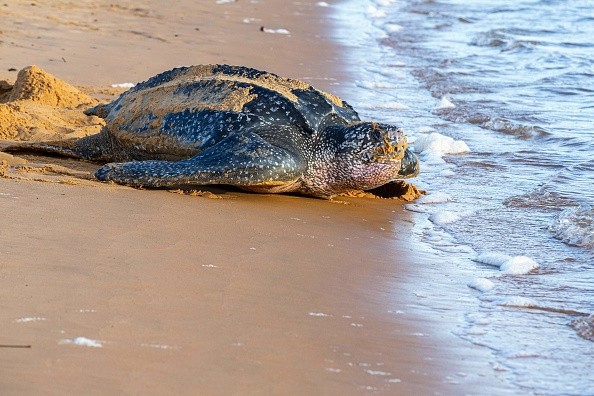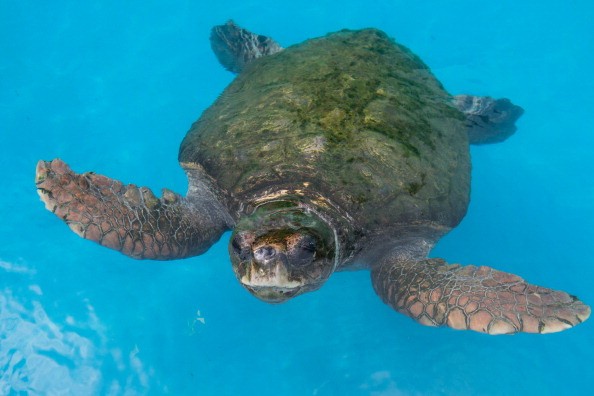Non-native species have been occasionally discovered along Oregon's frigid coastal waters. Two endangered Olive Ridley Sea Turtles have washed ashore on nearby beaches this past week.
One discovered in Lincoln City did not make it, but another is likely to survive and be released into a more suitable habitat in the future.
Sea turtles can be found far south of Oregon in the ocean. Finding one this far north is an uncommon event because their natural home is the warm tropical seas south of the US border.

Samuel K. Gardner found a turtle at the Peter Iredale shipwreck in Hammond, Oregon, just south of Astoria, on Wednesday. The delicate creature looked lifeless at the moment, but Gardner immediately noticed that the sea turtle was still alive.
Shortly after discovering the animal, Samuel found out it was still alive and notified Seaside Aquarium. Alec and Corinne Reeves, who happened to be walking on the beach at that time, quickly joined Samuel. Understanding that the injured sea turtle was in danger of being washed out by the rising tide, Gardner and his companions moved fast.
As the tide continued to surge in and the waves roared up the beach, Samuel and Alec thought it was best to transfer the turtle to a more secure spot.
The Rescue
Normally, it is advisable to wait until rescuers arrive before moving a sea turtle, but in this circumstance, it was crucial if the turtle was to survive. Samuel and Alec were able to carry the turtle over a mile and meet up with the Seaside Aquarium's response crew.
The 50-pound turtle was loaded and prepared to be transported south by aquarium employees. She will be taken to the Oregon Coast Aquarium in Newport, Oregon. The institution is one of two licensed sea turtle rehab facilities in the Pacific Northwest, with the Seattle Aquarium being the other.
Although the Olive Ridley Sea Turtle was suffering from extreme hypothermia, no outward injuries were discovered. "Cold-stunning," according to the aquarium, present consequences that are difficult to recognize and manage.
It can cause malnutrition, increased vulnerability to external traumas, and organ damage. Raising a sea turtle's body temperature is also dangerous; it must be done slowly and steadily to avoid shocking the animal's system.

Rehabilitating the Stranded Turtles
This is the time of year when cold-stunned turtles found themselves dumped on the Oregon and Washington coasts, and the public is told to keep an eye out for them and make report if they are found.
If the turtles are found alive, according to Oregon Coast Beach Connection, they usually don't endure long. Though some make it are released back into the wild.
When sea turtles migrate south, they frequently do not make it back to warmer waters in time, or they get lost tracking warm water currents northward and end up in the cold waters of the Oregon and Washington coasts.
The Oregon Coast Aquarium said this indicates "a change in ocean conditions and the potential for more strandings as winter approaches."
When stranded turtles are discovered and transferred to the Oregon Coast Aquarium, personnel examine the animal and take steps to stabilize it in the hopes of rehabilitating and releasing it.
While the chances of successfully rehabilitating stranded sea turtles are slim, the Aquarium will continue to work to conserve endangered species in the hopes that even one rescued turtle will contribute to species recovery.
Related Article : Sea Turtle Sightings in Ireland & the UK Are Mysteriously Declining
For more news, updates about sea turtles and similar topics don't forget to follow Nature World News!
© 2025 NatureWorldNews.com All rights reserved. Do not reproduce without permission.





